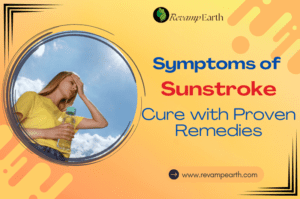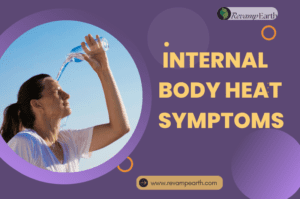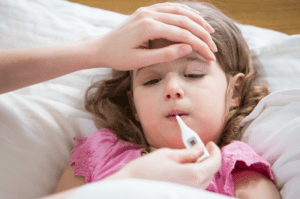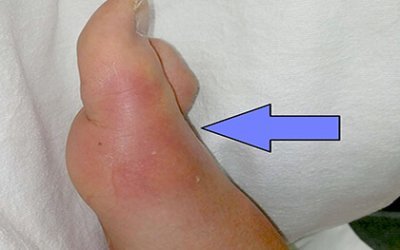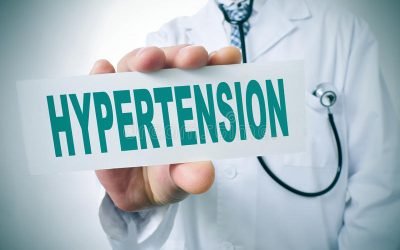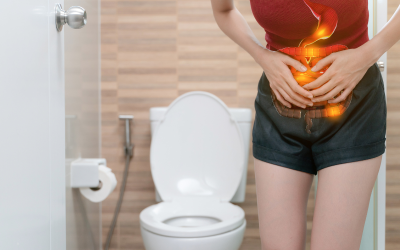Blood Pressure: A Prime Reason Of Heart Attacks In Youngsters
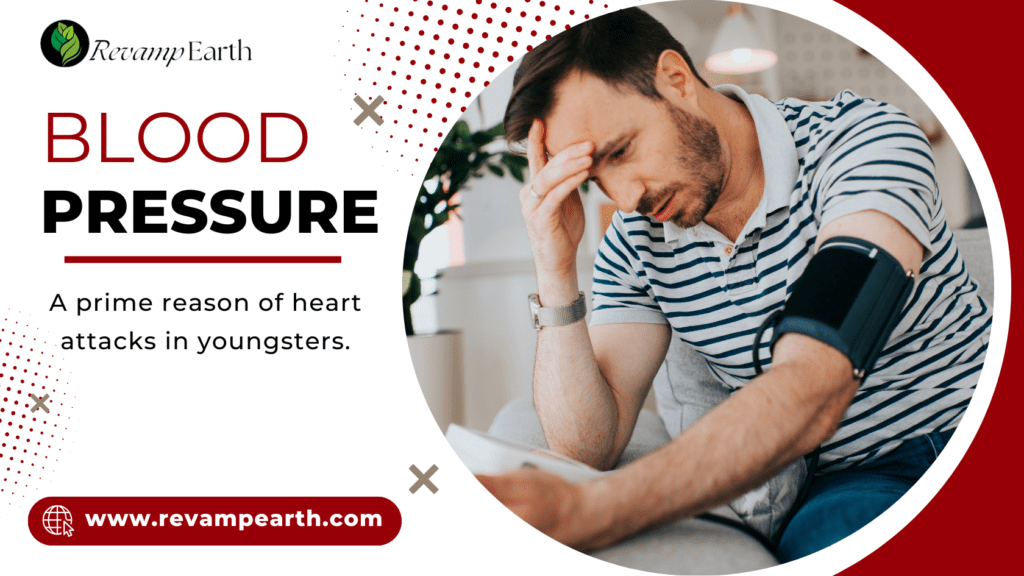
In a fast-paced world where stress, unhealthy lifestyles, and poor dietary choices prevail, the health of our hearts, especially among youngsters, is facing a growing threat. One silent culprit stands out as a major cause of concern – blood pressure. In this blog, we will explore the crucial connection between blood pressure and heart attacks in young adults, shedding light on the importance of awareness and natural ways to maintain a healthy balance.
Understanding the Link: Blood Pressure and Heart Attacks
Heart attacks, traditionally associated with the elderly, are becoming alarmingly prevalent among younger individuals. Studies show that elevated blood pressure is a significant contributor to this concerning trend. The heart works tirelessly to pump blood throughout the body, and when the force exerted against the arterial walls is consistently high, it can lead to various complications, with heart attacks being a severe consequence.
The Rising Threat Among Youngsters
Contrary to common belief, the youth are not immune to high blood pressure. Sedentary lifestyles, excessive screen time, poor dietary habits, and chronic stress contribute to an early onset of hypertension. This elevation in blood pressure, if left unchecked, poses a substantial risk for heart attacks, even in individuals under 40.
Why Should Young Adults Care About Blood Pressure?
Understanding the importance of blood pressure management is paramount for the younger generation. Elevated blood pressure not only strains the heart but also damages blood vessels over time, increasing the likelihood of heart attacks. By prioritizing awareness and adopting healthier lifestyles, young adults can take proactive measures to safeguard their hearts for the long run.
Understanding Abnormal Blood Pressure:
Blood pressure measures the force exerted by blood against the walls of our arteries. When this pressure is consistently too high (hypertension) or too low (hypotension), it can lead to a range of health issues.
Causes of High Blood Pressure:
Unhealthy Diet: Consuming high amounts of sodium (salt) and saturated fats.
Lack of Physical Activity: A sedentary lifestyle contributes to elevated blood pressure.
Obesity: Excess body weight puts strain on the heart and increases blood pressure.
Stress: Chronic stress triggers the release of hormones that can elevate blood pressure.
Smoking: Tobacco smoke contains chemicals that can damage blood vessels, raising blood pressure.
Excessive Alcohol Consumption: Regular and heavy drinking can lead to hypertension.
Age: Blood pressure tends to increase with age due to changes in artery stiffness.
Causes of Low Blood Pressure:
Dehydration: Insufficient fluid intake can lead to a drop in blood pressure.
Heart Problems: Conditions affecting the heart, such as extremely low heart rate or heart valve problems.
Endocrine Problems: Disorders like adrenal insufficiency or thyroid disorders.
Severe Infections or Allergies: Can cause a sudden drop in blood pressure.
Blood Loss: Significant loss of blood from a major injury or internal bleeding.
Lack of Nutrients in the Diet: A deficiency in certain vitamins and minerals can affect blood pressure.
Pregnancy: Some women may experience temporary low blood pressure during pregnancy.
Complications of Abnormal Blood Pressure:
High Blood Pressure Complications:
Heart Disease: Hypertension is a major risk factor for coronary artery disease, heart attacks, and heart failure.
Stroke: Elevated blood pressure can damage blood vessels in the brain, increasing the risk of stroke.
Kidney Damage: Chronic hypertension can impair kidney function over time, leading to kidney disease.
Vision Loss: Hypertension may damage blood vessels in the eyes, resulting in vision problems or even blindness.
Aneurysms: Weakened arteries may develop bulges (aneurysms), which can rupture and cause life-threatening internal bleeding.
Peripheral Artery Disease: Reduced blood flow to the limbs can lead to complications such as leg pain and, in severe cases, amputation.
Low Blood Pressure Complications:
Fainting or Dizziness: Insufficient blood flow to the brain can cause fainting or a feeling of lightheadedness.
Lack of Oxygen to the Brain: Prolonged low blood pressure may result in cognitive issues and difficulty concentrating.
Shock: Extremely low blood pressure can lead to a life-threatening condition known as shock, where vital organs do not receive enough blood.
End-Organ Damage: In severe cases, inadequate blood supply can damage organs such as the heart, kidneys, or brain.
Acute Kidney Injury: Reduced blood flow to the kidneys may result in acute kidney injury.
Chest Pain (Angina): Low blood pressure can decrease blood flow to the heart, causing chest pain and increasing the risk of heart-related complications.
Managing Blood Pressure:
High Blood Pressure Management:
Adopt a Heart-Healthy Diet:
Focus on fruits, vegetables, whole grains, and lean proteins.
Reduce sodium (salt) intake to help lower blood pressure.
Regular Physical Activity:
Engage in at least 150 minutes of moderate-intensity exercise per week.
Incorporate activities that promote cardiovascular health, such as brisk walking, cycling, or swimming.
Maintain a Healthy Weight:
Achieve and maintain a body weight within a healthy range.
Losing even a small amount of weight can have a positive impact on blood pressure.
Limit Alcohol Consumption:
Moderate alcohol consumption is advised (up to one drink per day for women and up to two drinks per day for men).
Quit Smoking:
Smoking damages blood vessels and can elevate blood pressure.
Seek support and resources to quit smoking.
Manage Stress:
Practice stress-reducing techniques such as meditation, deep breathing, or yoga.
Establish healthy coping mechanisms for dealing with stress.
Monitor Blood Pressure Regularly:
Keep track of blood pressure at home and attend regular check-ups with a healthcare professional.
Follow prescribed medications as directed.
Medication Adherence:
Take prescribed medications consistently and discuss any concerns or side effects with your healthcare provider.
Inform your healthcare provider of any changes in your health status.
Low Blood Pressure Management:
Hydrate Adequately:
Ensure you are drinking enough fluids throughout the day.
Dehydration can contribute to low blood pressure.
Gradual Changes in Position:
Avoid sudden movements, especially when transitioning from lying or sitting to standing.
This helps prevent dizziness or fainting.
Small, Frequent Meals:
Consume several small meals throughout the day rather than a few large ones.
This can help regulate blood sugar levels and prevent a sudden drop in blood pressure.
Increase Salt Intake:
If recommended by a healthcare professional, slightly increase salt intake.
This can help raise blood pressure, but it should be done under guidance.
Caffeine Intake:
Consume caffeinated beverages in moderation, as they can temporarily raise blood pressure.
Compression Stockings:
These can help improve blood flow in the legs and reduce symptoms of orthostatic hypotension (low blood pressure upon standing).
Consult a Healthcare Professional:
If hypotension is persistent or causing symptoms, seek advice from a healthcare provider for an appropriate management plan.
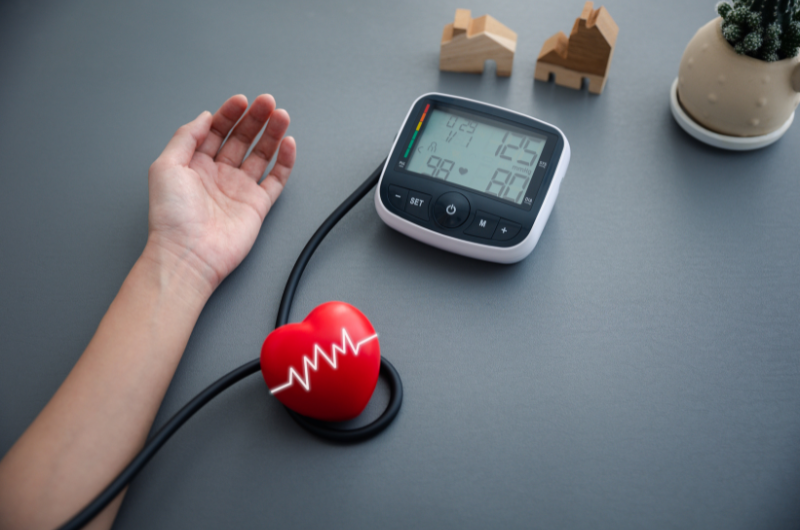
Home Remedies for Blood Pressure:
High Blood Pressure Home Remedies:
Incorporate garlic into your diet, as it may have blood pressure-lowering effects.
Consider adding fresh garlic to meals or taking garlic supplements after consulting with a healthcare professional.
Hibiscus Tea:
Studies suggest that hibiscus tea may help lower blood pressure.
Enjoy a cup of hibiscus tea regularly, but avoid it if you are pregnant or taking certain medications.
Omega-3 Fatty Acids:
Include sources of omega-3 fatty acids in your diet, such as fatty fish (salmon, mackerel, and sardines) or flaxseeds.
Omega-3s may contribute to overall cardiovascular health.
Potassium-Rich Foods:
Consume foods rich in potassium, such as bananas, oranges, spinach, and sweet potatoes.
Potassium helps balance sodium levels and supports healthy blood pressure.
Beetroot Juice:
Beetroot juice contains nitrates that may help dilate blood vessels and lower blood pressure.
Drink a small amount of beetroot juice daily, but be cautious if you have kidney issues.
Olive Oil:
Use extra-virgin olive oil in cooking, as it contains monounsaturated fats that may support heart health.
Parsley:
The elements in parsley help to maintain the blood vessels, particularly the capillaries and arterial system, in a healthy condition. It is thus very useful in high blood pressure. It may be taken as a beverage by simmering it gently in water for a few minutes, several times daily.
Jaundice Berry:
The herb is highly beneficial in the treatment of high blood pressure. Research has shown that it dilates the arteries thereby lowering blood pressure.
Low Blood Pressure Home Remedies:
Increase Salt Intake (under supervision):
Consult with a healthcare professional before increasing salt intake.
A slight increase in salt may help raise blood pressure, but excessive salt is not advisable.
Hydration:
Ensure adequate fluid intake, as dehydration can contribute to low blood pressure.
Drink water throughout the day but avoid excessive amounts in a short period.
Caffeine Boost:
Enjoy a cup of caffeinated tea or coffee to provide a temporary boost to blood pressure.
However, be mindful of overall caffeine intake.
Small, Frequent Meals:
Consume several small meals throughout the day to prevent drops in blood pressure after eating.
Include balanced meals with a mix of carbohydrates, protein, and healthy fats.
Compression Stockings:
Wear compression stockings to help improve blood flow in the legs and reduce symptoms of orthostatic hypotension.
Avoid Alcohol:
Limit alcohol consumption, as it can contribute to dehydration and lower blood pressure.
Rise Gradually:
Avoid sudden changes in position, especially when transitioning from lying down or sitting to standing.
In conclusion, the rising incidence of heart attacks among youngsters is a wake-up call to prioritize heart health. By understanding the crucial link between blood pressure and heart attacks, young adults can take charge of their well-being. Embracing a heart-healthy lifestyle and making informed choices today can pave the way for a healthier and happier future. It’s time for the younger generation to recognize the importance of maintaining a balanced blood pressure for the sake of their hearts and overall well-being.
References
- Flávio D. Fuchs, MD, PhD, FAHA and Paul K. Whelton, MB, MD, MSc, FAHA (2023) HIGH BLOOD PRESSURE AND CARDIOVASCULAR DISEASE. The National Institutes of Health View
- Dena Ettehad, MSc, Connor A Emdin, HBSc, Amit Kiran, PhD, Simon G Anderson, PhD, Thomas Callender, MB ChB, Jonathan Emberson, PhD, Prof John Chalmers, PhD, Prof Anthony Rodgers, PhD, Prof Kazem Rahimi, DM FRCP. (2016) Blood pressure lowering for prevention of cardiovascular disease and death: a systematic review and meta-analysis. The Lancet. View
- H.K.Bakhru (1992) Herbs That Heal: Natural Remedies for Good Health. Orient Paperbacks. Delhi, India.
- T.V.Sairam (1999) Home Remedies Vol-II: A Handbook of Herbal Cures for Common Ailments. Penguin Books India.
Dos
Adopt a Heart-Healthy Diet:
Consume a diet rich in fruits, vegetables, whole grains, and lean proteins.
Choose foods low in sodium and saturated fats.
Engage in Regular Physical Activity:
Aim for at least 150 minutes of moderate-intensity aerobic exercise per week.
Include activities that promote flexibility, strength, and cardiovascular health.
Limit Alcohol Intake:
Consume alcohol in moderation (up to one drink per day for women and up to two drinks per day for men).
Quit Smoking:
Smoking damages blood vessels and contributes to the development of high blood pressure.
Seek support and resources to quit smoking.
Manage Stress:
Incorporate stress-reducing techniques into your routine, such as meditation, deep breathing, or hobbies.
Monitor Blood Pressure:
Regularly check your blood pressure at home, especially if you have been diagnosed with hypertension.
Keep a log of readings to share with healthcare professionals during check-ups.
Follow Medication Guidelines:
If prescribed medications for high blood pressure, take them as directed by your healthcare provider.
Report any side effects or concerns to your healthcare team.
Get Adequate Sleep:
Aim for 7-9 hours of quality sleep per night to support overall health, including blood pressure regulation.
Don’ts
Avoid excessive consumption of high-sodium foods, such as processed and fast foods.
Opt for fresh, whole foods and use herbs and spices for flavor.
High Caffeine Intake:
Limit caffeine intake, especially if you are sensitive to its effects on blood pressure.
Be mindful of energy drinks and other sources of high caffeine content.
Ignoring Symptoms:
Do not ignore symptoms like dizziness, chest pain, or shortness of breath.
Seek prompt medical attention if you experience concerning symptoms.
Neglecting Regular Check-ups:
Don’t skip routine healthcare check-ups.
Regular monitoring helps identify and address potential health issues, including blood pressure concerns.
Sedentary Lifestyle:
Avoid prolonged periods of inactivity.
Incorporate regular movement into your day to promote cardiovascular health.
Ignoring Stress Management:
Don’t neglect stress management.
Chronic stress can contribute to elevated blood pressure; prioritize activities that help you relax.
Skipping Medications:
If prescribed medications for high blood pressure, do not skip doses.
Consistent adherence is essential for effective blood pressure management.
Send Us A Message
FAQs
- A normal blood pressure reading is typically around 120/80 mmHg. The first number (systolic) measures the pressure in your arteries when your heart beats, while the second number (diastolic) measures the pressure in your arteries when your heart rests between beats.
- Risk factors for high blood pressure include age, genetics, obesity, a sedentary lifestyle, excessive alcohol consumption, high sodium intake, stress, and underlying health conditions such as kidney disease.
- Common symptoms of a heart attack include chest pain or discomfort, shortness of breath, nausea, lightheadedness, and pain in other areas such as the arms, neck, jaw, back, or stomach. Women may experience different symptoms such as fatigue, indigestion, or pain in the back or jaw.
- If you think you're having a heart attack, call emergency services immediately. Chew and swallow an aspirin if you are not allergic to it and can do so safely. Seek medical attention right away, as early treatment can minimize damage to the heart muscle.


